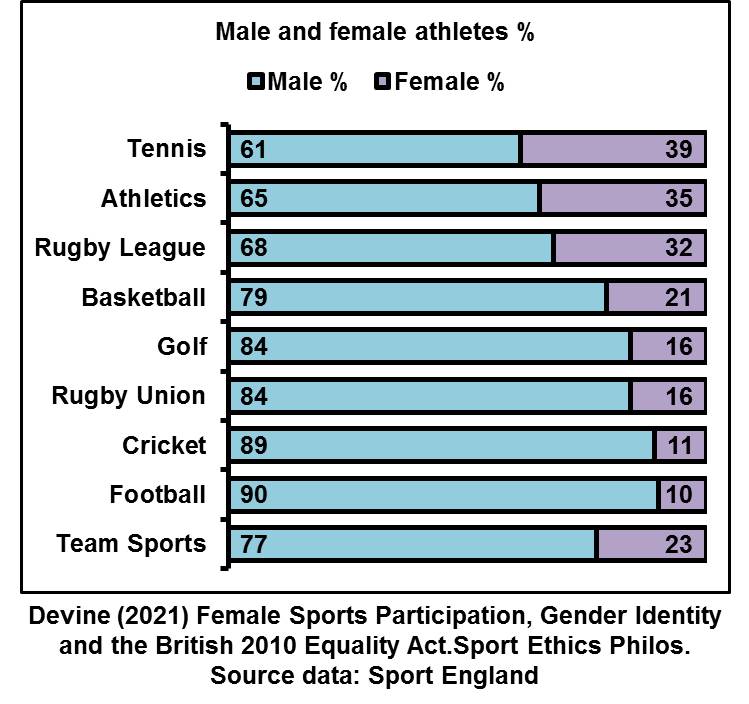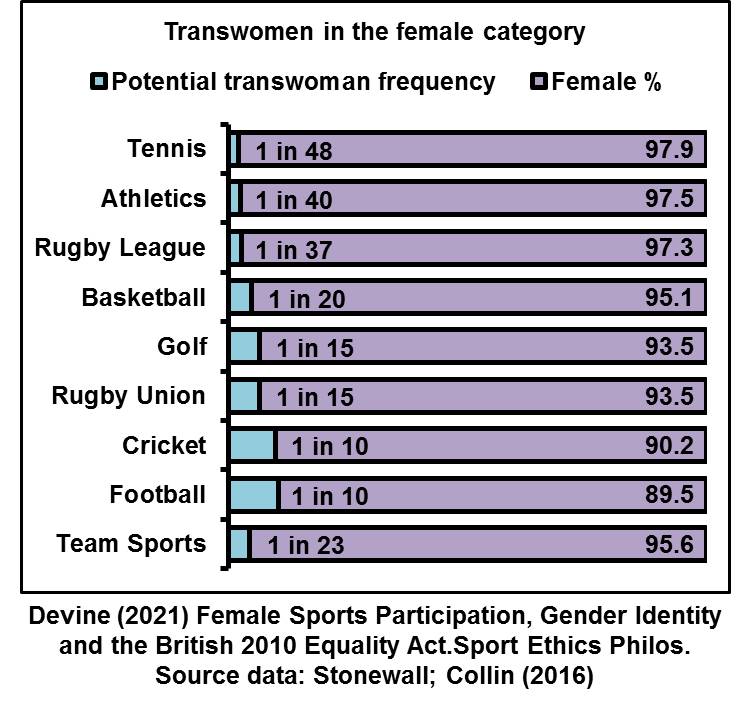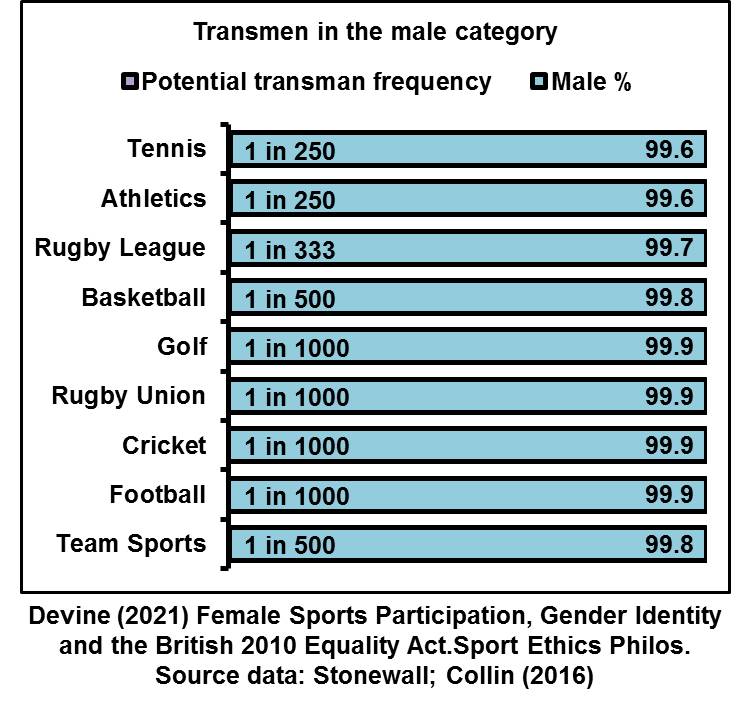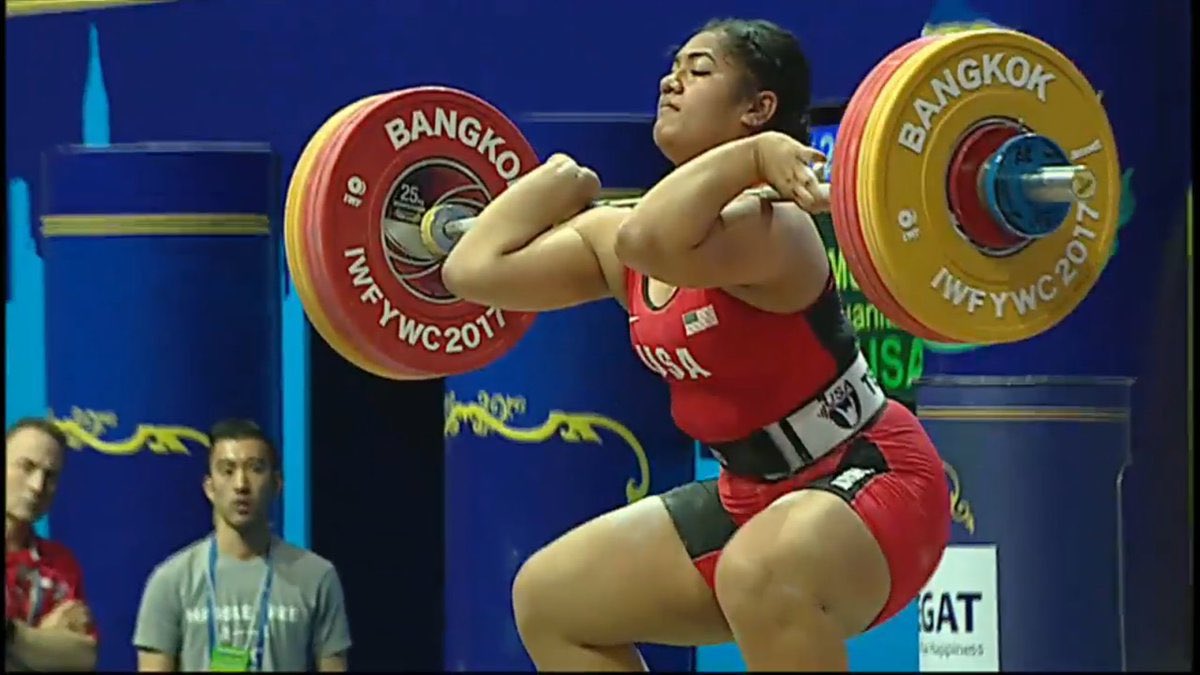‘These longitudinal data comprise a clear pattern of very modest to negligible changes in muscle mass and strength in transgender women suppressing testosterone for at least 12 months.’
Systematic review from Joanna Harper on muscular changes in transwomen.
‘These findings suggest that strength may be well preserved in transwomen during the first 3 years of hormone
‘These longitudinal data comprise a clear pattern of very modest to negligible changes in muscle mass and strength in transgender women suppressing testosterone for at least 12 months.’
Pictures of kittens welcome.
When two groups of scientists that have been cast on ‘opposing sides’ of an issue reach the same conclusions about a dataset, perhaps we might be able to accept what that dataset shows and move forward with solutions.
A new systematic review on the effects of cross-hormone therapy on physical parameters relevant for sport performance in transgender women. My brief thoughts are summarised in a thread: 1/6 https://t.co/eHmcCnt63H
— Tommy Lundberg (@TLexercise) March 3, 2021
More from Emma Hilton
With Cathy's permission, I have converted the stats from this paper into graphic form.
Read on.
First, Cathy reported the numbers and % split of UK males and females playing selected sports. Male participation is higher than female participation.

Then, Cathy used population estimates to predict the numbers of male and female athletes who would be eligible, under a selfID model, for the opposite sex category. Cathy calculated these trans athletes as % of opposite sex category.
I have calculated the trans athletes as a frequency in the opposite sex category.
Here is the data for transwomen in female sports.

Here is the data for transmen in male sports.

Read on.
Delighted my research article Female Sports Participation, Gender Identity and the British 2010 Equality Act is now published in Sport Ethics and Philosophy. 1/https://t.co/wNPz2sd2WD
— Cathy Devine (@cathydevine56) November 9, 2021
First, Cathy reported the numbers and % split of UK males and females playing selected sports. Male participation is higher than female participation.

Then, Cathy used population estimates to predict the numbers of male and female athletes who would be eligible, under a selfID model, for the opposite sex category. Cathy calculated these trans athletes as % of opposite sex category.
I have calculated the trans athletes as a frequency in the opposite sex category.
Here is the data for transwomen in female sports.

Here is the data for transmen in male sports.

@Hogshead3Au @BARBARABULL11 @boysvswomen @cbrennansports @Martina @devarona64 OK.
Fitness data from over 85k AUS children aged 9–17 yrs showed that, compared with 9 yr females, 9 yr males were 9.8% faster in sprints, 16.6% faster over 1 mile, could jump 9.5% further, could complete 33% more push-ups in 30 s and had 13.8% stronger grip.
@BARBARABULL11 @boysvswomen @cbrennansports @Martina @devarona64 Here is my full description of that data.
Example:
1.6km timed run (CV endurance)
The *best* 17 yr old girls are matched by *average* 17 yr old boys, and beaten, by some measure, by the best 9 yr old
@BARBARABULL11 @boysvswomen @cbrennansports @Martina @devarona64 Male advantage of a similar magnitude was detected in a study of Greek children, where, compared with 6-year-old females, 6-year-old males completed 16.6% more shuttle runs in a given time and could jump 9.7% further from a standing
@BARBARABULL11 @boysvswomen @cbrennansports @Martina @devarona64 In terms of aerobic capacity, 6- to 7-year-old males have been shown to have a higher absolute and relative (to body mass) VO2max than 6- to 7-year-old
@BARBARABULL11 @boysvswomen @cbrennansports @Martina @devarona64 Pre-puberty performance differences are not negligible, and could be mediated, to some extent, by genetic factors and/or activation of the hypothalamic–pituitary–gonadal axis during the neonatal period, sometimes referred to as “minipuberty”.
Fitness data from over 85k AUS children aged 9–17 yrs showed that, compared with 9 yr females, 9 yr males were 9.8% faster in sprints, 16.6% faster over 1 mile, could jump 9.5% further, could complete 33% more push-ups in 30 s and had 13.8% stronger grip.
@BARBARABULL11 @boysvswomen @cbrennansports @Martina @devarona64 Here is my full description of that data.
Example:
1.6km timed run (CV endurance)
The *best* 17 yr old girls are matched by *average* 17 yr old boys, and beaten, by some measure, by the best 9 yr old
Here is summary data from Catley and Tomkinson, 2012, who collated performance data from 85347 Australian schoolchildren aged 9-17 years old. pic.twitter.com/qKdxqywpoq
— Emma Hilton (@FondOfBeetles) November 19, 2020
@BARBARABULL11 @boysvswomen @cbrennansports @Martina @devarona64 Male advantage of a similar magnitude was detected in a study of Greek children, where, compared with 6-year-old females, 6-year-old males completed 16.6% more shuttle runs in a given time and could jump 9.7% further from a standing
@BARBARABULL11 @boysvswomen @cbrennansports @Martina @devarona64 In terms of aerobic capacity, 6- to 7-year-old males have been shown to have a higher absolute and relative (to body mass) VO2max than 6- to 7-year-old
@BARBARABULL11 @boysvswomen @cbrennansports @Martina @devarona64 Pre-puberty performance differences are not negligible, and could be mediated, to some extent, by genetic factors and/or activation of the hypothalamic–pituitary–gonadal axis during the neonatal period, sometimes referred to as “minipuberty”.
More from All
Ivor Cummins has been wrong (or lying) almost entirely throughout this pandemic and got paid handsomly for it.
He has been wrong (or lying) so often that it will be nearly impossible for me to track every grift, lie, deceit, manipulation he has pulled. I will use...

... other sources who have been trying to shine on light on this grifter (as I have tried to do, time and again:
Example #1: "Still not seeing Sweden signal versus Denmark really"... There it was (Images attached).
19 to 80 is an over 300% difference.
Tweet: https://t.co/36FnYnsRT9

Example #2 - "Yes, I'm comparing the Noridcs / No, you cannot compare the Nordics."
I wonder why...
Tweets: https://t.co/XLfoX4rpck / https://t.co/vjE1ctLU5x

Example #3 - "I'm only looking at what makes the data fit in my favour" a.k.a moving the goalposts.
Tweets: https://t.co/vcDpTu3qyj / https://t.co/CA3N6hC2Lq

He has been wrong (or lying) so often that it will be nearly impossible for me to track every grift, lie, deceit, manipulation he has pulled. I will use...

... other sources who have been trying to shine on light on this grifter (as I have tried to do, time and again:
Ivor Cummins BE (Chem) is a former R&D Manager at HP (sourcre: https://t.co/Wbf5scf7gn), turned Content Creator/Podcast Host/YouTube personality. (Call it what you will.)
— Steve (@braidedmanga) November 17, 2020
Example #1: "Still not seeing Sweden signal versus Denmark really"... There it was (Images attached).
19 to 80 is an over 300% difference.
Tweet: https://t.co/36FnYnsRT9

Example #2 - "Yes, I'm comparing the Noridcs / No, you cannot compare the Nordics."
I wonder why...
Tweets: https://t.co/XLfoX4rpck / https://t.co/vjE1ctLU5x

Example #3 - "I'm only looking at what makes the data fit in my favour" a.k.a moving the goalposts.
Tweets: https://t.co/vcDpTu3qyj / https://t.co/CA3N6hC2Lq


























